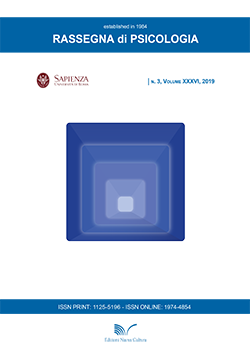Changes in Job Insecurity and Extraorganizational Outcomes: The Effects on Consumption and Major Life Decisions in Slovak Republic
DOI:
https://doi.org/10.13133/1974-4854/16715Keywords:
job insecurity, temporary employment, consumer behaviour, global financial crisis.Abstract
Over the last few decades several economic, political, and technological changes surrounding work have left people insecure about their jobs. Traditionally, research on insecure workers has focused on organizational consequences of job insecurity and on employees’ psychophysical well-being. However, some recent studies found that job insecurity is also associated with extraorganizational outcomes related to saving and spending decision-making. The purpose of this paper is to replicate in the Slovakian context the study of Lozza et al. (2017) to examine the effect of job insecurity on such extra-organizational outcomes. Using a simulation experiment research design, 361 Slovakian participants were asked to evaluate their job insecurity and their inclination towards daily consumption and major life decisions. Results support the findings from the original study. It is shown that changes of both contract of employment and context can affect perceived job insecurity, with context (e.g., economic downturns) having a stronger influence than contract of employment. In addition, changes in job insecurity significantly affect withholding daily consumption and major life decisions’, with perceived job insecurity having a greater influence on the latter. The effects of context-related specificities, such as employment protection legislation, are also discussed.Downloads
Published
2019-12-31
Issue
Section
Articles
License
Copyright (c) 2019 Cinzia Castiglioni, Michaela Hevierova, Edoardo Lozza

This work is licensed under a Creative Commons Attribution 4.0 International License.

